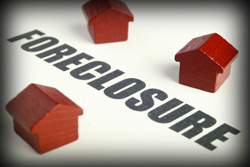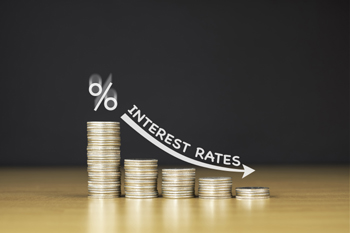This corronavirus is has a devastating effect on a lot of people, and its only going to get  worse. A lot of people are not going to be able to keep up with their mortgage payments. At some point, those people might be wondering if they could get a loan modification. You may be able to modify your home loan to catch up and avoid foreclosure.
worse. A lot of people are not going to be able to keep up with their mortgage payments. At some point, those people might be wondering if they could get a loan modification. You may be able to modify your home loan to catch up and avoid foreclosure.
A loan modification is a permanent restructuring of your original loan to provide you with a more affordable payment. Here is what you need to know about modifying your loan due to financial hardship:
You Need To Be Qualified
Not everyone can restructure their loan. Your lender will have to agree to a modification based on a series of criteria such as:
Showing you can’t make your current payment due to financial hardship
You can’t refinance the loan
Your debt-to-income ratio has increased
If your lender decides to modify your loan, you will go through a trial period to show that you can afford the new monthly payments.
It is essential to remember that lenders want you to be able to repay your loans. Contact your mortgage company to discuss your situation and work together towards a solution.
You Need Financial Proof Of Hardship
For your lender to modify your loan due to financial hardship, you will need to provide financial proof. That means getting together:
Recent federal and state tack returns
Bank statements
Pay stubs
All information regarding your loan
Letter of hardship
A letter of hardship is a letter you write to your lender to explain your situation. You will also have to submit an application with your information in addition to the above.
Beware Of Loan Modification Scams
If you need to modify your loan, it is recommended to go directly to your lender and avoid loan modification companies. Loan modification companies act as middlemen between you and your lender and it is often cheaper and faster to handle the process yourself.
In addition, many loan modification companies are less than honest, if not an outright scam, charging high fees for actions you can easily do yourself, like mail paperwork and reply to messages from your provider.
Worst case scenarios have caught people in paying the company rather than their mortgage, being told to stop communicating with their provider altogether, and paying high up-front costs.
If you suspect a scam, contact the FTC and other sources and report the incident. In doing so, you can help protect others.
If you do not understand something about the loan modification process, your lender will be more than happy to answer your questions and get you the help you need.
Ruth Schoenherr is a mortgage broker who will help you find home loans in the Clearwater, Palm Harbor, Largo, Safety Harbor, St Petersburg and Tampa Bay area. For more information, go to her web site at www.ClearwaterMortgageBroker.net or call at 727 447-2418.
 monthly payment. Then figure out what your closing costs will be, with hone inspections, appraisals and fees. Let’s say for example that it will cost you $5,000 to refinance and you will save $100 a month. It will take you a little over 4 years to break even. How long do you think you will stay in your house? Obviously it you are going to be there less that 4 years, it wouldn’t make sense to refinance.
monthly payment. Then figure out what your closing costs will be, with hone inspections, appraisals and fees. Let’s say for example that it will cost you $5,000 to refinance and you will save $100 a month. It will take you a little over 4 years to break even. How long do you think you will stay in your house? Obviously it you are going to be there less that 4 years, it wouldn’t make sense to refinance.






